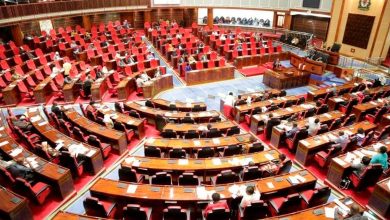Government urges protection of marine resources

DAR ES SALAAM: THE government has urged citizens to take active steps in protecting marine resources, underscoring the ocean’s critical role in connecting nations, driving global trade and sustaining life on earth.
The call was made on Thursday by Tanzania Shipping Agencies Corporation (TASAC) Director General, Mr Mohamed Salum, as the country joined the global community in marking World Maritime Day, commemorated annually on the last Thursday of September.
This year’s theme, “Our Ocean, Our Obligation, Our Opportunity,” highlights the vital role oceans play in sustaining life, livelihoods and the global economy.
Mr Salum pointed out the mounting threats facing oceans due to human activity including plastic and chemical pollution, oil spills, seabed mining and carbon emissions which are driving acidification and rising sea levels.
He warned that such pressures endanger ecosystems, economies and the very survival of coastal communities.
“The ocean is more than a resource; it is our lifeline. Protecting it is not a choice but an obligation. We must act decisively against pollution, overfishing and unsustainable practices while embracing opportunities in the Blue Economy,” he stressed.
He further called for collective responsibility to ensure that future generations inherit a healthy ocean and a sustainable planet.
The TASAC boss said the government will continue to work with international partners, local stakeholders and communities to promote sustainable shipping, curb marine pollution and advance policies that conserve biodiversity.
“Through these actions, Tanzania seeks not only to protect its maritime heritage but also to harness the vast potential of the Blue Economy,” he said.
He added that Tanzania’s long coastline has historically been a source of food, trade, cultural exchange and discovery an endowment that carries a solemn duty of preservation for future generations.
According to scientists, oceans generate 50–60 per cent of the oxygen we breathe, absorb vast amounts of carbon dioxide, regulate global climate and support immense marine biodiversity.
They also underpin millions of jobs globally in shipping, fishing, tourism, aquaculture, oil and gas and other emerging Blue Economy industries.





